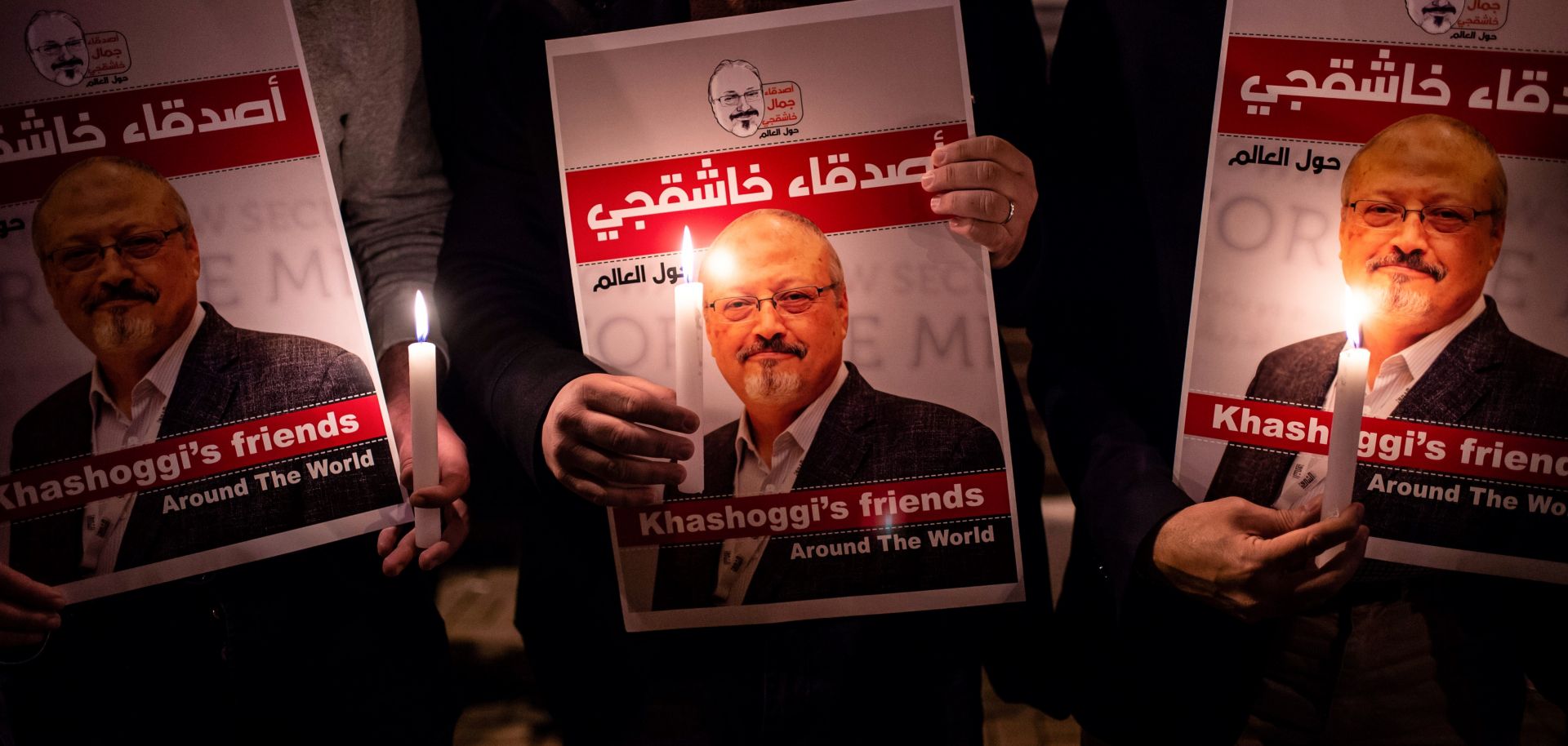ASSESSMENTS
Why Saudi Arabia Can't Escape Jamal Khashoggi
Oct 2, 2019 | 17:48 GMT

People hold posters depicting murdered Saudi journalist Jamal Khashoggi during a candlelit vigil outside the Saudi Consulate in Istanbul on Oct. 25, 2018. Saudi Crown Prince Mohammed bin Salman won't find it easy to avoid calls for justice over Khashoggi's death.
(YASIN AKGUL/AFP/Getty Images)
Highlights
- Saudi Arabia has lost its warm relationship with Congress in part because of Khashoggi's killing, meaning new anti-Saudi legislation, sanctions or resolutions will eventually emerge in the legislature.
- U.S. President Donald Trump will block any anti-Saudi action by Congress for now, but a new human rights outrage or a Democratic victory in 2020 presidential elections could change the White House's willingness or ability to push back against Congress.
- This means Saudi Arabia remains at risk of U.S. sanctions and anti-Saudi legislation, while activists will boycott and protest some businesses that choose to do business in Saudi Arabia
Subscribe Now
SubscribeAlready have an account?
